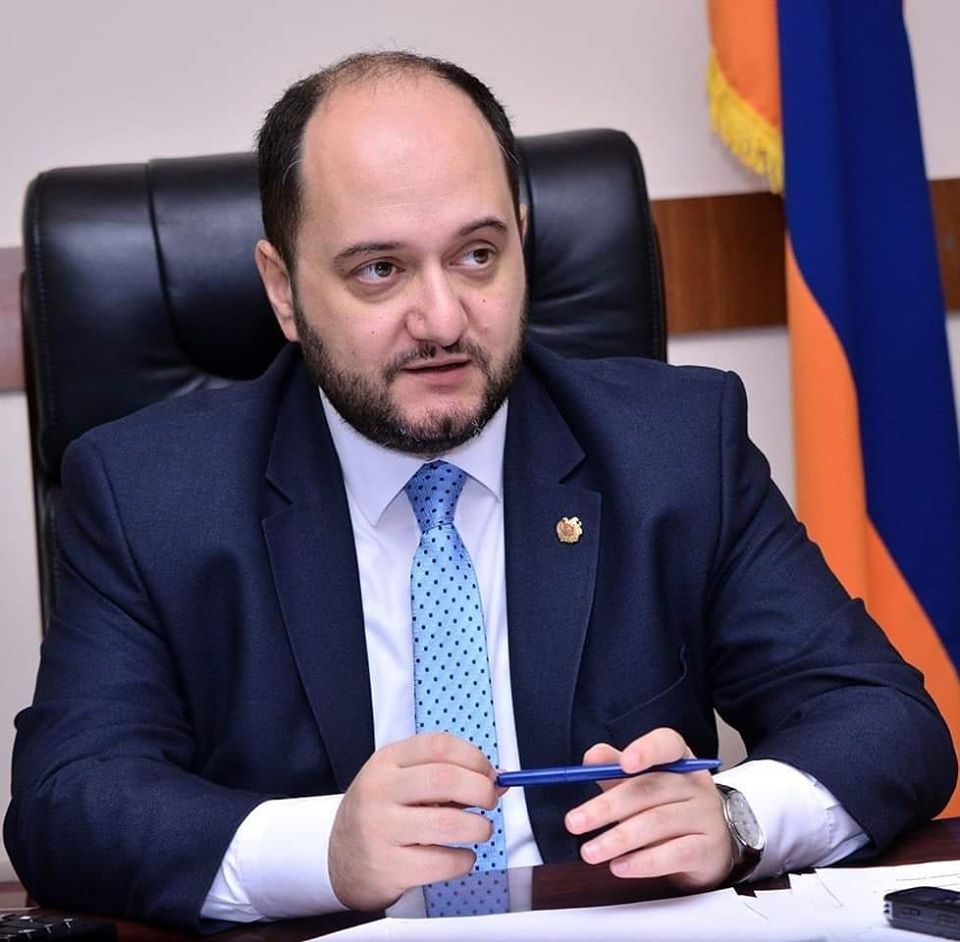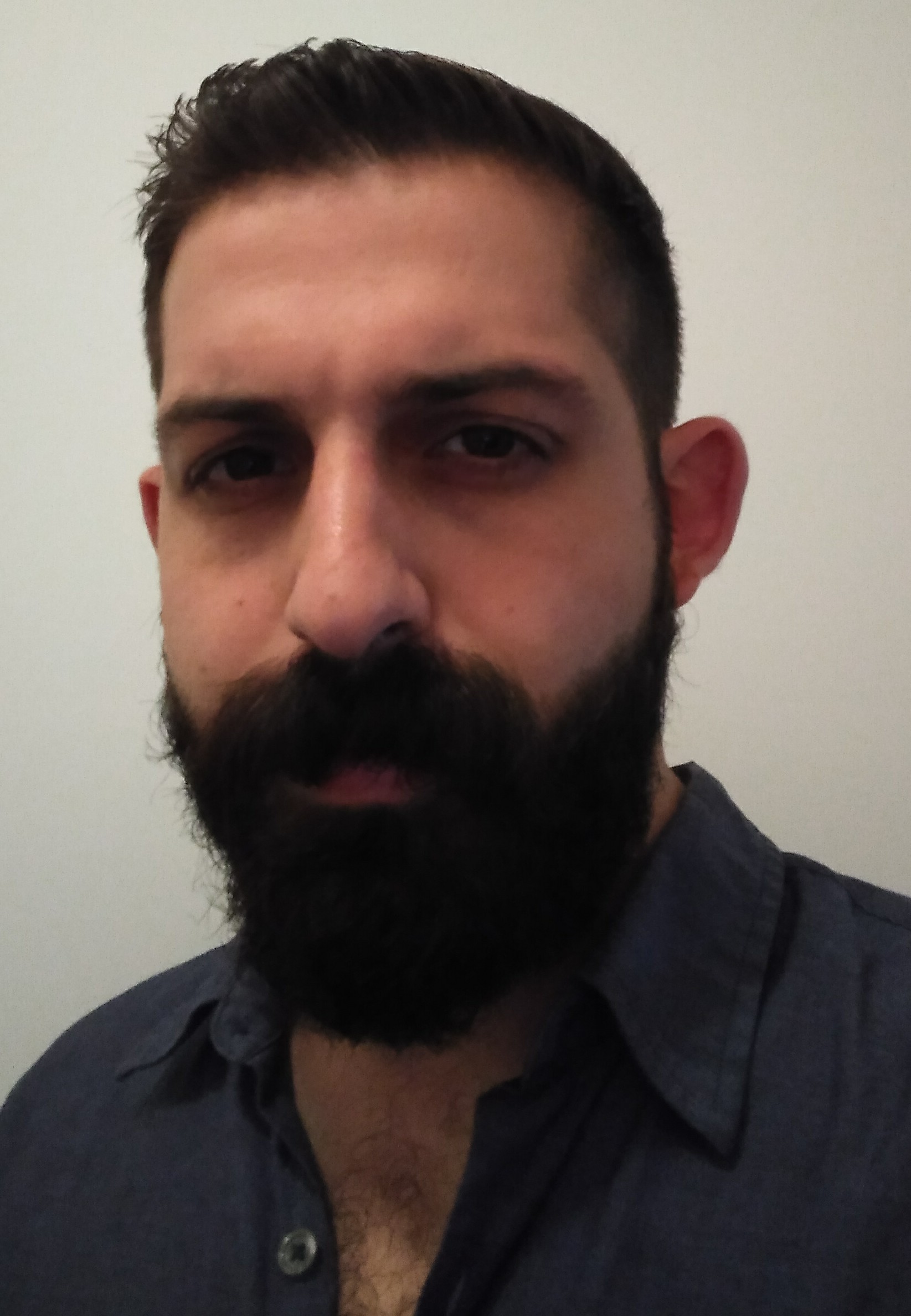
I would like to begin with a few tokens of gratitude for Armenia’s Minister of Education, Culture and Sport, Arayik Harutyunyan.
Thank you for your boldness. Few would be so bold as to put forth a proposal which, for many Armenians, appears to attack our national language, literature and history. You have successfully galvanized citizens and members of the Armenian nation around the world in engaging with issues of education. In line with the principles of the Velvet Revolution, you have made such a ridiculous proposal that it has prodded Armenians everywhere into getting up off their seats and participating in civic life. For that, I am grateful.
Thank you for your transparency and receptiveness. Through your interviews, you have revealed that you and your team lack the ability to come up with complex strategic solutions. You are honest enough to display this vulnerability to the public, presumably so that they might come to your rescue. You have revealed that you are receptive to the Armenian public doing your work for you by coming up with more robust and thoughtful solutions to the problems facing Armenia’s higher education.
We are happy to oblige you, Mr. Harutyunyan.
The reasoning offered by the Minister regarding the elimination of the mandatory requirement of Armenian language, literature and history in higher education was that students in Armenia receive sub-par education in these areas in primary and secondary education. According to the Minister of Education, Culture and Sport, the only reason the requirement exists is to make up for what the students may have failed to learn in primary and secondary school, through a repetition of the same material.
By eliminating the requirement, the Ministry is kicking this crutch out from under us, so that we will be forced to increase standards at the primary and secondary levels. To follow the analogy further, if our current system is producing disabled students, the solution is to knock the crutches out from under us first and only then proceed to make sure our institutions can produce capable students? If we accept the Minister’s logic, then it seems they are neglecting the current generation’s needs. Even if we agreed with Mr. Harutyunyan that required higher education classes aren’t there for more critical engagement with these subject areas, but merely to make up for a flawed high school education, wouldn’t it make sense to raise the standards at the primary and secondary level first and only then consider what ought to be done with the higher education requirement? Taken at face value, Arayik Harutyunyan’s logic here seems backwards.
If we give the Minister a little more credit than this, and assume he has a higher level of intelligence than his nonsensical explanation suggests, then there must be more to his reasoning for eliminating the mandatory requirement for Armenian language, literature and history.
There are those who want to suggest an anti-national disposition as the reason for the Minister’s decision. He has made it difficult not to at least suspect otherwise. For example, upon seeing an Armenian priest during his visit to a village school, he reacted with contempt and disdain, asking the principal, “What business does he have here?” Many perceived this as an attack on one of our national institutions and its representatives.
Likewise, the recent Hoo-Zank Oo-Zank performance commissioned by the ministry was seen by some as anti-national. If the public’s reception of these events carries weight, then the suspicion that the removal of Armenian language, literature and history requirements is an anti-national decision begins to seem plausible. The Minister has insisted that his intention is actually to raise the quality of education in these areas.
In fact, the Minister seemed to have revealed his actual intentions during an interview on November 6, 2019 with 1in TV. During the interview he says, “Let us allow the specialist to receive specialization at the university by completing supplemental coursework in their area of specialization.”
This statement is telling. There is a prevailing attitude in Armenia regarding expertise and specialization, which focuses on narrow specialization suited for technical labor rather than producing well-rounded persons capable of engaging in informed decision making in a free society. The latter reflects the precondition for citizens living in a democracy, while the former is a reflection of the totalitarian legacy of the Soviet Union that reduced persons to mere tools of the state, operating solely in their area of technical specialization. When Harutyunyan says the universities must “give a greater place to the different areas of specialized, technological subjects,” he is echoing an instrumentalist/utilitarian conception of society that reflects one of the more tragic aspects of Armenia’s Soviet legacy, a view that is equally prevalent under the contemporary neoliberal paradigm. Whether he knows it or not, the Minister’s statements reflect a rejection of liberal and humanist principles essential to democratic society.
This is precisely the issue with removing the mandatory requirement for classes in language, literature and history. These humanities subjects are essential for the cultivation of persons capable of self-governance. This is the literal meaning of the word kaghakavar (varel – to rule, kaghak – city), which has historically been the aim of university education. In the interview, Harutyunyan dismisses the public’s criticism of the Hoo-Zank Oo-Zank performance that took place outside Republic Square Metro Station by repeatedly stating that the relevant specialists need to give their evaluation. Again, this reflects a Soviet attitude, whereby the humanities were reduced to technical specialization and a government policy that did not take the opinions of the public into consideration. The humanist position, on the contrary, accepts that all areas, including areas of aesthetics, are intelligible and that a person with a well-rounded liberal education should be able to contribute to coherent discourse on such matters.
The Minister is correct in saying that higher education should not be a repetition of primary and secondary school, but the solution is to offer more at the university level rather than to remove the requirement altogether.
For example, Armenian language classes can offer the option of taking Classical or Western Armenian. Another option could be classes in dialectology, which would, on the one hand, connect students to the world largely lost due to the Armenian Genocide, while on the other hand more deeply connecting them to their compatriots across the republics of Armenia and Artsakh. The study of Eastern Armenian at the university level can also offer a more advanced study of the language, so that Stepan Partamian can comfortably retire from his position as language police.
Armenian history and literature classes can offer options varied by historic time period, genre and other categories. The policy can be changed so that students can choose topics like Armenian poetry, prose or plays.
Even with the current classes offered in the mandatory subjects, university education in these areas should include development of research skills, critical discourse, free and open discussion in the classroom, written and oral communication skills and the ability to formulate arguments. All these skills go beyond any particular specialization. They are skills needed for all areas, including STEM, and are desirable for all mature adult persons in a democratic society.
This requirement also supports the cultivation of Armenian citizens with a deeper, more dynamic understanding of their common language, thought and collective past. In an interview with A1+ regarding the Minister’s decision, Armenian Youth Organization Central Executive Member Kristine′ Vardanyan stated, “[understanding] the national is the foundation for understanding the global.” The study of Armenian language, literature and history is in a particularly unique position in this regard, for they can do both simultaneously, because all three of these areas have developed at the crossroads of Eastern and Western civilization, such that the study of the national could also provide an understanding of the global. At the same time, given the physical erasure of much of our culture and history at the hands of Turkey and the Ottoman Empire and the suppression of much of our culture and history at the hands of the Soviet Union, this is a time for each of us to search for a deeper understanding of ourselves during the adult phase of our education, not to confine it only to primary and secondary school education.
Again, I thank the Minister for moving us with his hoozank, so that we’ll engage in this public critique and offer our help. His actions signify a cry for help – a zank (bell/alarm). This hoozank oo zank of his should not go unanswered. He needs adequate individuals to aid him in shaping policy. And, while I hope he will not limit himself to listening only to narrow specialists, he can at the very least consider the humble opinion of this pedagogue, licensed by the Republic of Armenia, who also happens to have practical experience as a teacher in that country.



The Author said it well, couldn’t agree more.
“These humanities subjects are essential for the cultivation of persons capable of self-governance. This is the literal meaning of the word kaghakavar (varel – to rule, kaghak – city), which has historically been the aim of university education.”
“For example, Armenian language classes can offer the option of taking Classical or Western Armenian. Another option could be classes in dialectology, which would, on the one hand, connect students to the world largely lost due to the Armenian Genocide, while on the other hand more deeply connecting them to their compatriots across the republics of Armenia and Artsakh. The study of Eastern Armenian at the university level can also offer a more advanced study of the language, so that Stepan Partamian can comfortably retire from his position as language police. “
Is this a joke? Arayik Harutyunyan is the one who attacks our national language, literature and history. He is the one who removing Armenian language, religion and history classes from Armenian college education and soon in schools. He is the one who is promoting LGBT values popularization in kids day care. He is the one who told thousands of students The he doesn’t care what they say that he doesn’t care what students think and he will remove language and history no matter what. He is the one said no matter what I do prime minister will cover him and we all know why. I don’t blame this young guy who wrote this article as he is trying to please a person who he met when he got a temp job in Armenia. But what is written here about him promoting Armenian history and culture is totally opposite in reality. Ask people who live in Armenia and you will hear the answer and the stories.